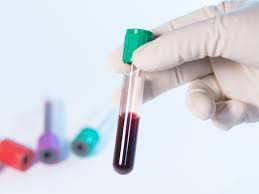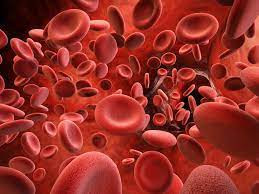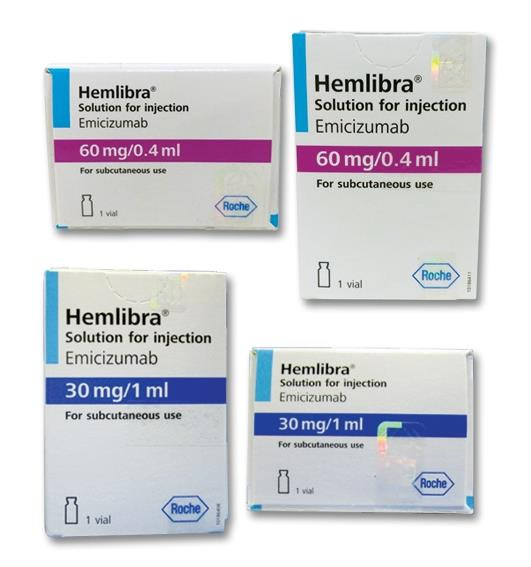Definition
Coagulopathy is a blood disorder generally related to an imbalance in hemostasis, which pertains to blood coagulation. Hemostasis is the process of preventing or stopping bleeding and plays an important role in treating blood vessel damage. The key components of the hemostasis system include blood vessels, platelets, coagulation factors, and fibrinolytic proteins.
Hemostasis can be categorized into primary and secondary processes. Primary hemostasis is the initial response to blood vessel or platelet damage. Meanwhile, secondary hemostasis involves several subsequent processes during blood clotting, such as the activation of coagulation factors that trigger fibrin formation to seal the wound. In coagulopathy, disorders can occur in both primary and secondary hemostasis. Primary hemostasis disorders involve abnormalities in blood vessels or platelets, while secondary hemostasis disorders involve qualitative or quantitative damage to coagulation factors or their inhibitors.
Causes
Coagulopathy is commonly associated with chronic diseases such as liver disorders, blood cancers like leukemia, inherited blood disorders like thrombocytopenia (low platelet count), trauma or injury, vitamin K deficiency, infections, long-term antibiotic use, and anticoagulant therapy. Genetic conditions like hemophilia and von Willebrand disease also impair blood clotting factors, contributing to coagulopathy. Other conditions and factors that can affect the body's ability to clot blood include low blood protein levels.
Risk factor
Not everyone has risk factors for developing coagulopathy. However, some factors that can increase the risk of coagulopathy include:
- Age, with newborns being vulnerable to vitamin K deficiency or elderly individuals with hemophilia A
- Blood type
- Gender, with males being more prone to hemophilia
- Family history of coagulopathy disorders
- Other medical conditions such as cancer, autoimmune diseases, and liver disorders
- Blood transfusions
- Use of certain medications, such as antibiotics, blood thinners, or interferon alfa
- Pregnancy or recent childbirth
- Obesity
- Recent surgery with excessive bleeding
- Use of devices that can increase blood flow
Symptoms
The symptoms of coagulopathy can vary depending on the location of the bleeding. Common symptoms associated with coagulopathy include:
- Excessive bleeding following injury, trauma, surgery, or spontaneous bleeding
- Difficulty in stopping bleeding
- Symptoms of bleeding in joints (such as swelling, pain, or a sensation of warmth)
- Hematoma formation (bleeding under the skin)
- Bleeding in the mouth or gums
- Frequent nosebleeds, which may sometimes be challenging to stop
- Low iron levels (iron deficiency anemia)
- Other bleeding-related symptoms
Diagnosis
The doctor will conduct a medical history assessment by asking about your symptoms, medical background, and family medical history to identify any risk factors for coagulopathy. A physical examination is necessary to detect symptoms like bleeding, swelling, and wounds. If the doctor suspects a coagulopathy disorder, they may recommend further tests such as:
- D-dimer test to detect the presence of blood clots in blood vessels
- Complete blood count
- Prothrombin time test to determine clotting time
- Coagulation factor tests to assess clotting factor levels in the blood
- von Willebrand factor test
- Genetic testing, to identify blood clotting disorders
- Other medical examinations like ultrasound or CT scan to screen for blood clots
Management
The treatment approach for coagulopathy is determined based on the type of blood clotting disorder, its severity, and the individual's overall health condition. Treatment aims to address symptoms and reduce the risk of complications. The doctor may recommend one or more of the following medications:
- Antifibrinolytic drugs to manage bleeding after childbirth or surgery
- Birth control pills to reduce bleeding during menstruation
- Desmopressin
- Immunosuppressant drugs
- Vitamin K supplementation
- Blood thinners to reduce the risk in individuals with hypercoagulable conditions (conditions where blood clots more easily than normal)
- Thrombin inhibitors or thrombolytics, or inhibitors of clotting factors
Doctors may also recommend other treatments, such as factor replacement therapy to replace missing clotting factors if laboratory tests reveal a deficiency. Factor replacement therapy involves using donor blood or infusions containing replacement factors from the laboratory.
Emergency care may be necessary in patients experiencing severe blood clotting. In other conditions, doctors may recommend blood or platelet transfusion to address blood loss or prevent excessive blood clotting. These transfusions are aimed at patients experiencing excessive blood loss or those with fewer platelets than normal.
Complications
Appropriate treatment when bleeding occurs is crucial to prevent and limit further organ damage. Without proper intervention, complications from coagulopathy can be serious or life-threatening. Some complications of coagulopathy include anemia, internal organ bleeding, pseudotumor (a condition where pressure around tissues arises due to bleeding, fractures, and spinal cord infections), shock, oxygen deficiency (hypoxia), seizures, coma, and even death.
Prevention
Rapid blood clotting can present challenges in daily activities. Therefore, certain sports and activities should be avoided as they may lead to impact or trauma. Managing body weight and daily activities, such as avoiding prolonged sitting, can also help alleviate symptoms of blood clotting disorders.
When to see a doctor?
Contact your doctor if you have any risk factors for coagulopathy or experience symptoms such as excessive bleeding, swelling, or recurrent bruising. Without proper treatment, the consequences of inadequate or excessive blood clot formation can be very dangerous. Coagulopathy disorders present since birth should always be monitored under a doctor's supervision. Discuss your condition with a hematologist for further examination and treatment if necessary.
- Editor AI Care
Coagulopathy and its associated factors among patients with a bleeding diathesis at the University of Gondar Specialized Refferal Hospital, Northwest Ethiopia. (2021). Retrieved 28 March 2023, from https://thrombosisjournal.biomedcentral.com/articles/10.1186/s12959-021-00287-6
Coagulopathy. (2023). Retrieved 28 March 2023, from https://www.topdoctors.co.uk/medical-dictionary/autoimmune-coagulation-disorders
Coagulopathy : Signs, Causes, Treatment and More Explained. (2022). Retrieved 28 March 2023, from https://www.healthgrades.com/right-care/vascular-conditions/coagulopathy
Bleeding Disorders. (2022). Retrieved 28 March 2023, from https://www.ncbi.nlm.nih.gov/books/NBK541050/
What to Know about Coagulation Disorder. (2021). Retrieved 28 March 2023, from https://www.medicalnewstoday.com/articles/coagulation-disorders
Management of Coagulopathy in Bleeding Patients. (2022). Retrieved 28 March 2023, from https://www.medicalnewstoday.com/articles/coagulation-disorders











